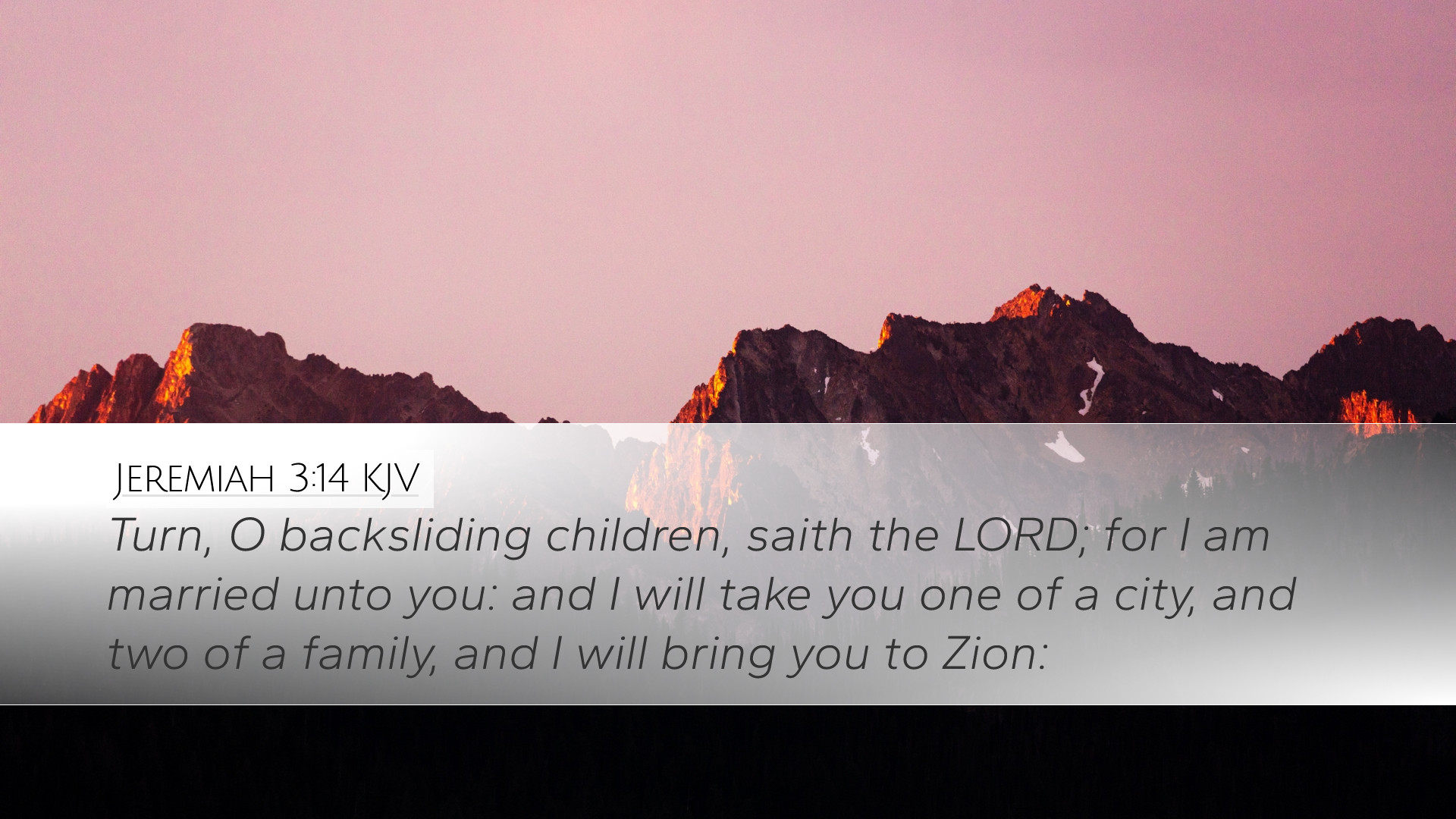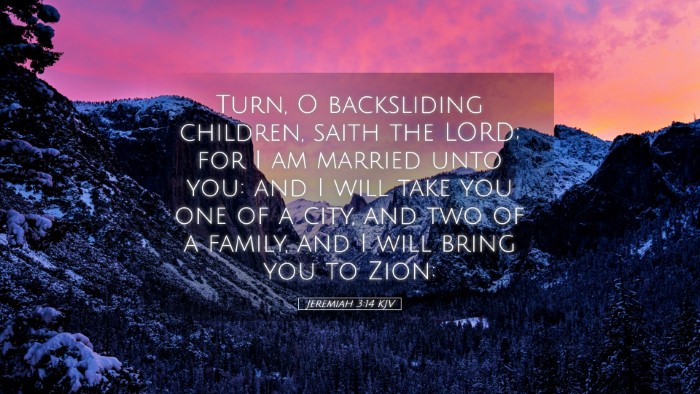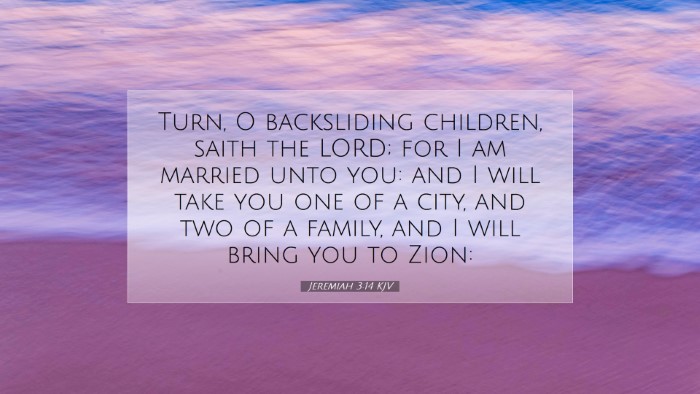Commentary on Jeremiah 3:14
Text of Jeremiah 3:14 (KJV): "Turn, O backsliding children, saith the Lord; for I am married unto you: and I will take you one of a city, and two of a family, and I will bring you to Zion."
Introduction
This verse stands as a profound invitation from God amidst a backdrop of Israel's unfaithfulness. The themes of repentance, divine fidelity, and the renewal of relationship permeate this passage, offering a rich ground for theological exploration and application.
Overview of Textual Analysis
In Jeremiah 3:14, we see God addressing His people, the Israelites, whom He refers to as "backsliding children." The Lord's appeal for their return is marked by notable theological implications, showcasing His compassion and the covenantal relationship established with His people. This verse not only calls for repentance but also emphasizes God’s unwavering commitment.
Insights from Public Domain Commentaries
Matthew Henry
Call to Repentance: Matthew Henry emphasizes God's persistence in calling His people to repentance. He notes the phrase "Turn, O backsliding children," indicating God's desire for restoration. This is not merely a demand but an expression of love, as Henry elaborates that God speaks with the yearning of a parent seeking a wayward child.
Covenant Love: Henry further explores the metaphor of marriage used here, signifying the deep bond between God and Israel. The notion of God being "married" to His people underscores a relational fidelity that surpasses human understanding. The covenant relationship, with its implications of loyalty and love, sets the stage for understanding the seriousness of Israel's backsliding.
Albert Barnes
The Dynamics of Backsliding: Albert Barnes offers a detailed examination of the term "backsliding." He notes that backsliding involves a conscious and willful departure from God's ways, resulting in spiritual decline. Barnes argues that this verse highlights the unfaithfulness of Israel, yet simultaneously emphasizes God's determination to accept them back upon their return.
The Gathering of God’s People: Barnes interprets the latter part of the verse, where God states, "I will take you one of a city, and two of a family," as a promise of restoration. This phrase illustrates a remnant mindset, indicating God's intent to gather and rebuild His people, demonstrating His redemptive nature even in judgment.
Adam Clarke
Nature of Divine Invitation: Adam Clarke takes a pastoral approach in his commentary, drawing attention to the message of hope imbued in God's call. He emphasizes the use of the term “children” as a reminder of God's paternal care. Clarke suggests that the Lord's call reflects a desire not just for obedience, but for a heartfelt return to Him, showcasing His long-suffering and grace.
Implications for the Church: Clarke’s reflections extend the relevance of this verse to the contemporary church, pointing out that backsliding is not solely an ancient issue but one still prevalent today. His insights encourage believers to examine their own hearts and relationships with God, fostering a communal aspect of repentance and the renewal of commitment to the Lord.
Theological Themes
1. Divine Fidelity
This verse encapsulates the theme of divine fidelity, illustrating that despite Israel's unfaithfulness, God remains steadfast. The metaphor of marriage serves to highlight the seriousness of the covenant and God's readiness to embrace those who return.
2. Repentance and Restoration
Jeremiah 3:14 serves as a call to genuine repentance. The structure of the verse indicates God's accessible nature; He is not distant but actively desires a reconciled relationship. The promise of restoration is a pivotal aspect, revealing God's willingness to forgive and restore His people.
3. The Beloved Remnant
The phrase about taking "one of a city, and two of a family" presents the biblical idea of a remnant, emphasizing that God’s redemptive work often focuses on a small group that remains faithful. This opens discussions on God's sovereignty in election and the preservation of a faithful remnant throughout history.
Conclusion
Jeremiah 3:14 is a poignant reminder of God’s call for repentance and His steadfast love for His people. It is an invitation to return to a loving relationship characterized by fidelity and acceptance, resonating through the ages. For pastors, theologians, and students of the Word, this verse is a vital text that encourages self-examination, community restoration, and a deeper appreciation of God’s unyielding fidelity to His covenant promises.


